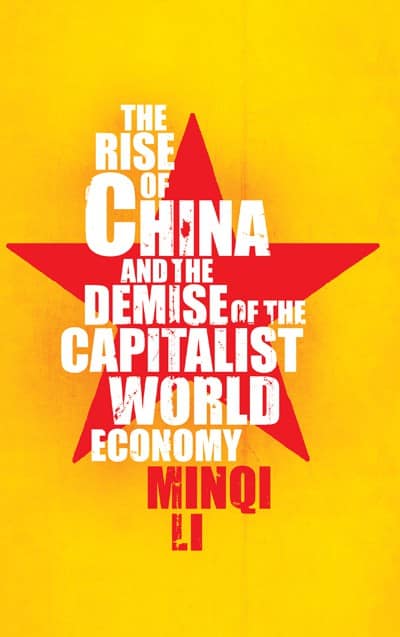The Rise of China and the Demise of the Capitalist World Economy
$20.00 – $85.00
The author tells us that historically the spread and growth of capitalist economies has required low wages, taxation, and environmental costs, as well as a hegemonic nation to prevent international competition from eroding these requirements. With the decline of the economic power of the United States, its current hegemonic role will deteriorate and the unprecedented growth of China will so erode the foundations of capital accumulation—by pushing wages and environmental costs up, for example—that the entire capitalist system will be shaken to its core. This is essential reading for those who still believe that there is no alternative.
Minqi Li has accomplished something different and very important. He has placed the ‘Rise of China’ from the Mao era to today in the context of the history of the entire world-system. He makes a persuasive case.
—Immanuel Wallerstein, Yale University
A thought-provoking account. Minqi Li considers the consequences of the entry of China into the global capitalist system, in light of the challenges facing human society from economic, political, and environmental constraints. This book makes a major contribution.
—David M. Kotz, Professor of Economics,
University of Massachusetts, Amherst
…an important and significant contribution to the study of China’s potential futures and, in terms of [Minqi Li’s] analysis of both the Mao period and the nature and sustainability of post-Mao reforms, perhaps an even more important contribution to the study of China’s past and present.
—Shaun Breslin
Journal of Contemporary Asia
Minqi Li is Assistant Professor of Economics at the University of Utah. He became an adherent of radical economics as a political prisoner in China from 1990-1992 and began an intensive study of China’s economy and its role in the world capitalist system upon his release.
Publication Date: March 2009
Number of Pages: 240
Paperback ISBN: 9781583671825
Related products
-
Monthly Review Volume 2, Number 10 (February 1951) [PDF]
$10.00 Add to cart -
Monthly Review Volume 2, Number 8 (December 1950) [PDF]
$10.00 Add to cart -
Monthly Review Volume 2, Number 1 (May 1950) [PDF]
$10.00 Add to cart -
Monthly Review Volume 1, Number 12 (April 1950) [PDF]
$10.00 Add to cart -
Monthly Review Volume 1, Number 8 (December 1949) [PDF]
$10.00 Add to cart -
Imperialism and World Economy
$15.00 Select options This product has multiple variants. The options may be chosen on the product page

![Monthly Review Volume 2, Number 10 (February 1951) [PDF]](https://monthlyreview.org/wp-content/uploads/2015/09/Monthly Review Volume 2, Number 10 (February 1951) [PDF].jpg)
![Monthly Review Volume 2, Number 8 (December 1950) [PDF]](https://monthlyreview.org/wp-content/uploads/2015/09/Monthly Review Volume 2, Number 8 (December 1950) [PDF].jpg)
![Monthly Review Volume 2, Number 1 (May 1950) [PDF]](https://monthlyreview.org/wp-content/uploads/2015/09/Monthly Review Volume 2, Number 1 (May 1950) [PDF].jpg)
![Monthly Review Volume 1, Number 12 (April 1950) [PDF]](https://monthlyreview.org/wp-content/uploads/2015/09/Monthly Review Volume 1, Number 12 (April 1950) [PDF].jpg)
![Monthly Review Volume 1, Number 8 (December 1949) [PDF]](https://monthlyreview.org/wp-content/uploads/2015/09/Monthly Review Volume 1, Number 8 (December 1949) [PDF].jpg)
